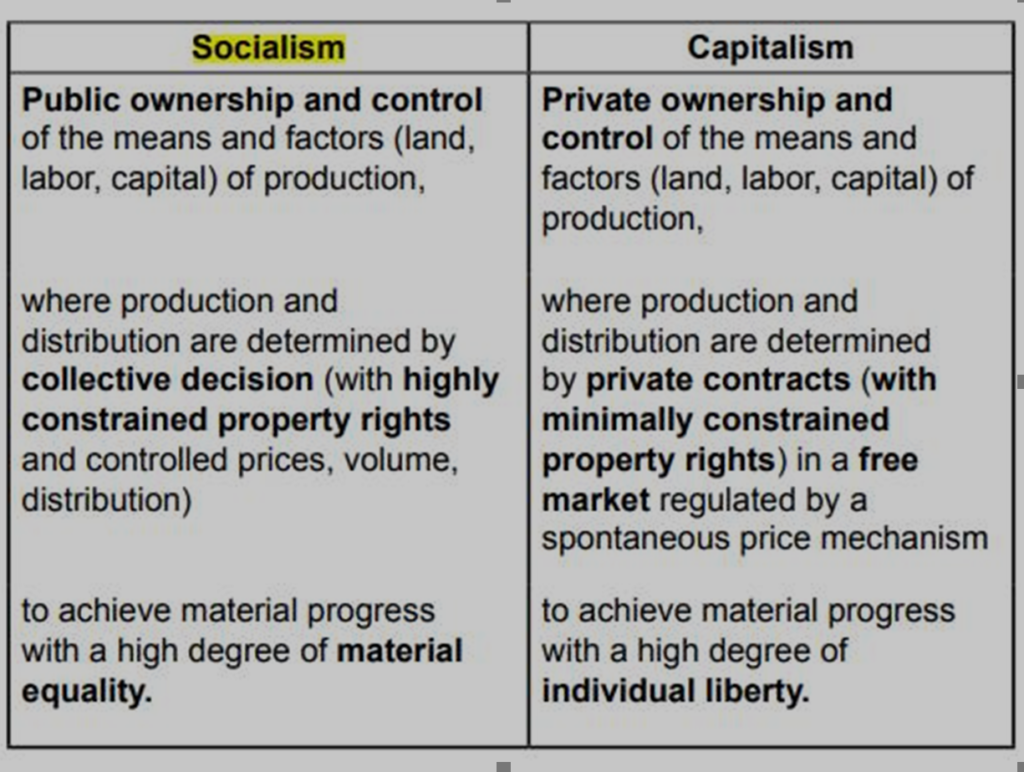From Plato & Aristotle until Machiavelli (1532),political philosophy rested on notions of virtue residing in the rulers and the ruled. Machiavelli changed the paradigm; the primary goal is the preservation of order.
Thomas Hobbes, in Leviathin 1571, produced the four parts of the contract theories, which have been evident ever since:
- a description of the state of nature;
- the formation of a social contract among individuals to leave the state of nature, where each gives up some right or liberty previously held;
- the political community formed by the contract; and
- the selection of a government to rule the political community. Again, the source of political authority is the community, but the agent who wields the authority is the government.
Other than Islamism, since late 1700’s the social contract has been a struggle between some forms of socialism and capitalism. Holy Cross Professor Lawrence Cahoone gives this summary.

Public ownership and control can range from central govt to workers. To my knowledge, all worker ownership forms have failed at the collective decision-making phase. Govt ownership has taken a number of forms.
Major developments that have changed the context from agrarian feudalism:
- Scientific Enlightenment
- Industrial Revolution
- Nationalism
- World Wars I & II
- Technological & Economic growth
So, given our current context, how should we envision the optimal social contract.
- What is our natural state?
- How much liberty should we give up?
- What community(ies) should emerge?
- How should govt wield authority?
My answers run like this.
- Self-centered, greedy with strands of goodness.
- As little as possible consistent with no harm to others.
- Locally determined, nationally coordinated.
- Capitalism, but with methods for improving the material outcomes of the less-advantaged with a minimum of hand-out welfare, but full protection of the infirm.